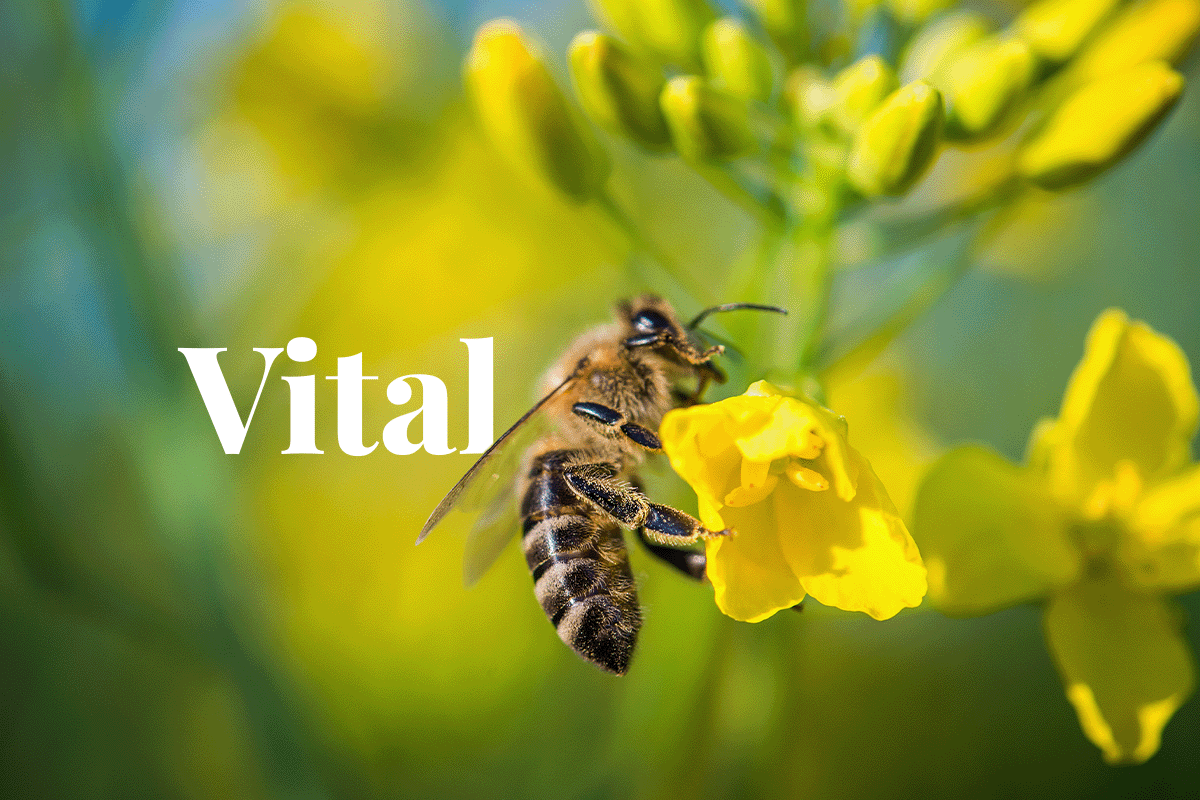In a recent report titled Sustaining insect biodiversity in agricultural systems to ensure future food security, the urgent need to preserve insect biodiversity for food security is emphasised. The report highlights the alarming decline of insect populations due to climate change and intensified agricultural practices.
 Close up on a bee collecting a pollen on a flower oilseed rape.
Close up on a bee collecting a pollen on a flower oilseed rape.
According to the report, a staggering 69% decline in wildlife populations has occurred in the past 50 years, largely due to the expansion and intensification of agriculture. Currently, humans and domestic animals make up 96% of mammalian mass, while wild mammals constitute a mere 4%. This significant loss of biodiversity poses a serious threat to the delicate balance of ecosystems.
Insects play a crucial role in agriculture by facilitating pollination, controlling pests, and recycling nutrients in the soil. However, the expansion and intensification of agriculture have severely impacted insect biodiversity. Approximately one-third of insect species are now at risk of extinction. The combined effects of climate warming and intensive agricultural land use have led to a 50% reduction in insect abundance and a 27% decline in species diversity.
Read more: Nature’s symphony: 15 Interconnected wonders of biodiversity
The loss of insect biodiversity not only has ecological implications but also profound economic and social consequences. Agricultural productivity is directly affected, jeopardising future food security. To address this pressing issue, a paradigm shift in food production and consumption is essential.
To sustain biodiversity in agriculture, it is crucial to identify and address the main drivers of biodiversity loss. Conservation and restoration efforts should be prioritised, with a focus on protecting natural habitats. The current agricultural footprint covers nearly half of Earth's habitable land and must be managed with biodiversity and ecosystem functions as key priorities.
The report investigates the causes of insect biodiversity decline and compares different agricultural production practices to determine the most effective strategies for mitigating further loss. It emphasises the importance of minimising habitat loss and fragmentation, reducing reliance on monocultures, and limiting the use of agrochemicals.
Read more: Preserving biodiversity: the emerging megatrend investment
A shift towards sustainable production and consumption practices is necessary to protect insect biodiversity. Conservation agriculture, regenerative grazing management, organic farming, and landscape diversification are proposed as potential solutions. These approaches aim to minimise ecological disturbance, promote natural habitat restoration, and reduce the negative impact of agrochemicals on insect populations.
Efforts to sustain insect biodiversity require a holistic approach that involves farmers, policymakers, and consumers. Balancing economic interests with biodiversity conservation is crucial. Incentives and support should be provided to encourage the adoption of sustainable agricultural practices.
By protecting and restoring natural habitats within agricultural landscapes, it is possible to preserve insect biodiversity and ensure future food security. Collaboration between agricultural systems and natural ecosystems is key to achieving sustainable and resilient food production.
DGB Group is dedicated to protecting the interconnectedness of life on Earth, aligning with the pressing need to preserve biodiversity. Through the implementation of sustainable practices and harnessing the power of nature, DGB contributes to biodiversity conservation and fosters a harmonious coexistence between humans and the natural world.
In a world facing escalating challenges to biodiversity, organisations like DGB play a crucial role in ensuring a future where the marvels of biodiversity can thrive. By embracing nature-based solutions and nurturing a profound understanding of the intricate wonders within our ecosystems, we can pave the path towards a sustainable and vibrant planet for future generations.
Join us in ensuring a future where all species can thrive

